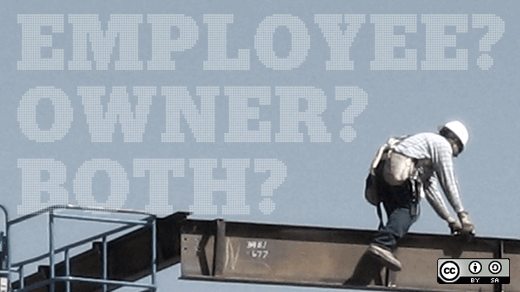There are a few things you should know about democratically run “cooperative” businesses. First, they're not all that unusual. They're also respectably profitable. And working in one doesn't require you to be a Marxist or wear patchouli.
Something old, something new
Last December, the United Nations declared 2012 to be “The International Year of Cooperatives,” encouraging countries around the world to promote the establishment of these types of businesses. And with good reason.
From Spain's seventh-largest business, Mondragon Corporation, a federation of worker cooperatives that employs over 90,000 people, to Wisconsin's Isthmus Engineering, with its 29 co-owners, cooperative businesses are thriving. Arguably the most well known, Mondragon is now 54 years old and has outperformed private sector companies on employee compensation and, during several bleak recession years, unemployment rates.
Still, when people hear the word “cooperative,” most have difficulty envisioning anything beyond a crunchy granola health food store. That's perhaps not surprising, considering the closest thing to employee-ownership most corporate workers experience is an Employee Stock Ownership Plan, where they can purchase (or are granted) stock in their company. These programs are designed to incentivize workers to be more productive, as they now benefit directly from the business's success. They are built around the assumption that monetary reward is the best motivation for workers.
Cooperative businesses take this idea of employee ownership and engagement one step further: employees actually own and operate the business. Besides the profit motive, cooperative models assume that workers value a more humanized workplace, where the input of ground-level employees can improve the business. Most cooperative businesses are founded on the democratic principle of “one worker, one vote,” and no two are alike.
The many faces of the cooperative
Isthmus Engineering employs around 45 people, who are eligible to become worker-owners of the company after two years of service. According to controls engineer Ole Olson, worker-owners “get to decide how our company runs, what we build, what we don’t build.” The waiting period gives employees time to experience the business model, get acclimated to the environment, and understand the corporate culture.
Nearby Union Cab operates a bit differently, creating new owners almost immediately, as long-time member Fred Schepartz explained to The Workers' Paradise:
“All employees who pass probation are members of Union Cab Cooperative. Period. [...] There is no caste system. Structurally, there are no members that are more equal than others. Yes, we have managers, but they have to answer to the board of directors, which is elected from the membership, by the membership. Essentially, management works for the employees though they are given the authority to do their jobs. [E]verybody who works at Union Cab who has passed probation is a full-fledged member. Drivers, dispatchers, phone answerers, mechanics, IT staff, accounting staff. Everybody.”
Meanwhile, New York City's Cooperative Home Care Associates, which provides services like light housekeeping and personal care to a number of elderly and disabled individuals, focuses on transforming what are traditionally low income, entry-level, part time jobs into full time positions with training, full benefits, higher wages, and guaranteed hours. The company offers a number of special services tailored to the needs of these workers, including no-interest loans up to $250, free tax preparation, and savings programs toward the $1,000 required to become a worker-owner. Meanwhile, operating decisions are made by a 14-member Board of Directors, eight being elected from among all worker-owners. The Worker Council, composed of 12 home care workers, serves as a liason between the Board of Directors and the employees, explaining decisions and advocating for needs. Each worker-owner votes to approve or deny the annual allocation of net profit determined by the Board.
There are many more stories of profitable cooperatives, from bakeries to retailers. There are also a number of organizing bodies, including the US Federation of Worker Cooperatives, National Cooperative Business Organization, and the International Co-operative Alliance.
Learning from success
Even Pittsburgh's United Steel Workers Union is getting in on the (cooperative) action. The union is partnering with Mondragon to explore the possibility of steel worker cooperatives. With over 40,000 manufacturing facilities closed throughout the United States during the economic recession, exploring new business models probably isn't a bad idea.
Retired steelworker Rick Kimbrough told SolidarityEconomy.net that he's all for the initiative. “Ever since they shut down our mill, I've always thought, 'Why shouldn't we own them?' If we did, they wouldn't be running away.”






6 Comments